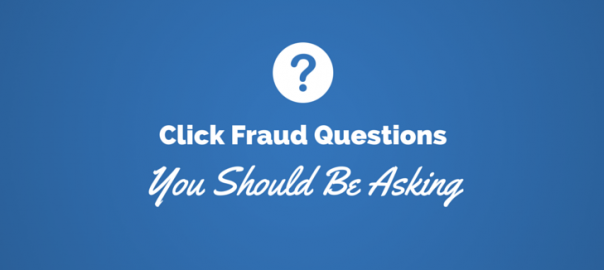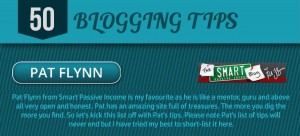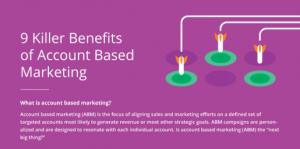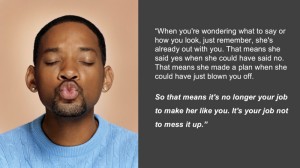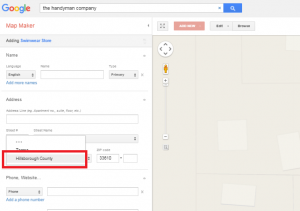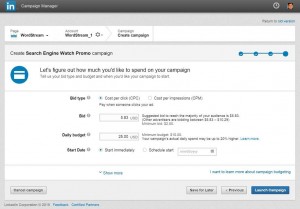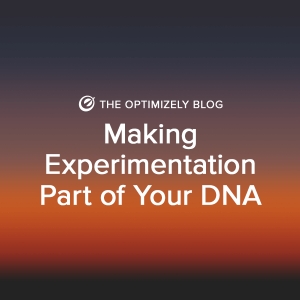
You’ve been hearing a lot about click fraud. And you’re worried it’s going to negatively affect your campaigns. Click fraud is an unnecessary evil that isn’t going away. In fact, advertisers lose $ 6.3 billion annually due to ad fraud, but it’s speculated that they could be losing as much as $ 18 billion. Naturally, you’re not looking to lose advertising funds to ad fraud, but you don’t know where to begin either.
Protect yourself and your clients by asking these common click fraud questions.
1. What is Click Fraud?
Click fraud is when humans or bots are used to click on a website’s advertisements. Why would anyone do that? Well, it’s simple – for the money. The more clicks an ad receives, the more money the advertiser owes to the person harboring their ad. However, these clicks don’t result in customers making a purchase, as intended. Fraud can be carried out in many ways including:
- Bot Farms
- Botnets
- Individuals being paid to click ads
Bots or humans that click on ads without the intention of converting, or making the action intended by the advertiser, can be considered click fraud.
2. Why Is Seeing Click Fraud a Problem?
Fraudulent clicks make it appear as though you’re receiving more traffic from a source than you actually are. At first, the increase in traffic to your website looks great, but you’ll quickly realize it doesn’t convert. These bots provide and get paid for their traffic, but defraud an advertiser and take money away from their ad budget.
What a rip-off, right? You’re spending your hard-earned money to make sure your ads are seen by their intended audience. Not only do you want these ads seen, you want the people seeing them to make the leap from browsing your ads to becoming a paying customer.
Some other startling facts about click fraud include:
- It’s estimated that $ 6.3 million will be lost in 2015 due to fraudulent traffic.
- 11% of display ad views are attributed to bots.
- Bots account for 23% of the views on video ads.
- Bots are responsible for up to 50% of publisher traffic.
3. How Do You Determine If a Click Is Fraudulent?
Bots do things that humans can’t and humans do things that bots can’t. That’s the simple way of putting it, but it’s really not that simple at all.
Many click fraud detection companies use a host of methods to flesh out what is and isn’t fraudulent traffic. Some common methods to determine if a click is fraudulent include:
- IP address attribution or duplicate IP addresses
- Information about the host network
- Geo-targeting
- Browser information
- User session patterns
Fraudsters are always looking for ways to scam. As such, traffic validation companies typically employ a host of experts who study analytics, patterns, markers, and methods to better capture, and reduce, click fraud incidents.
Think of it like this: similar to Wile E. Coyote in Looney Tunes, traffic validation companies set up traps. In this scenario, the bot is the Road Runner, and the trap is the fraud filter. However, in this case, you want the Road Runner to get caught.
Your first line of defense against bots is a Captcha form. You’ve seen it. It’s the block of random text that a human should be able to identify and fill out. Unfortunately, fraudsters found a way around this. Bots have become more intelligent and can now fill out a Captcha form.
You’ve heard the expression, “You catch more flies with honey than you do with vinegar,” right? It’s the same for bots. You lure them into traps, also known as honeypots or blackholes. These tricks protect your form without interrupting the experience of your human visitors.
The premise is simple. Much like any other trap, you entice the bots to your form. However, instead of the bot filling out the form meant for your prospects, they fill out a form meant for them. This trap is hidden code in your form that attracts the bot, but humans can’t see it. It then takes the IP information from the bot and then bans it from filling out your form.
Pro-tip: It’s important to remember that non-performing traffic doesn’t always mean your clicks are the result of fraud. It could simply be that your keywords aren’t performing or aren’t optimized well. Always be testing, that way you can find a formula that works.
4. Are You Using Any Third-Party Validation Systems?
First and foremost, some publishers only want to use certain validation systems that their client, or a trusted vendor, has pre-approved. Sometimes it’s simply because their clients are using this validator’s traffic as a scoring mechanism for the traffic they provide. Other times, clients are only comfortable with certain providers. And, unfortunately, sometimes publishers will score well on certain networks and not others, so it’s no surprise they’ll stay away from the providers that don’t score them well.
 (Image via Rocket Fuel, Inc.)
(Image via Rocket Fuel, Inc.)
That’s why, in addition to our own traffic validation service, Traffic Advisors Infinity, eZanga utilizes third-party systems to validate traffic based on the client’s needs.
Before purchasing traffic, clients need to make sure it’s going to help them reach their goals. Some of the most common goals PPC clients have when starting a campaign are:
- Brand Recognition
- Time on Site
- Quality Conversions
If clients are looking to get their brand’s name out there, they may choose quantity of traffic over quality. That’s not to say the traffic they buy isn’t great, rather this traffic is aimed to make prospects relate their brand to the type of product they sell. Think of it this way: When you need a new pair of running shoes, what’s the first brand you think of? For me, it’s Nike. These clients want to be the Nike of whatever product they’re pushing.
Clients may choose to purchase traffic to get prospects on their site for a certain amount of time. Why? They want people to consume their website content. It’s estimated that if someone is on your site for one to two minutes, they’ve had sufficient time to check out what you have to offer. The opposite is true if they spend less than a minute on a site.
Clients looking for traffic that will lead to solid conversions will lean towards higher tiered traffic. While this traffic may be a bit pricier than lower tiers, these clients understand that the greater the risk, the greater the reward.
But don’t forget to ask yourself: Is the traffic you’re buying the right fit for you?
5. What is Your Traffic Filtration System Score?
Any platform worth its weight in gold will have some type of traffic filtration system in place. These systems block fraudulent clicks and remove them from the networks. For instance, eZanga uses its own software, Traffic Advisors Infinity, as well as third-parties to verify traffic. Other platforms use similar third-parties to block fraudulent clicks.
Not every traffic scoring system is the same because traffic scoring isn’t a universal system. Before choosing which system to use, you need to know how it scores traffic. The main things a scoring company looks for are:
Clean, Genuine Traffic
- Source Location – Otherwise known as how someone got to your site. This helps you determine whether the location of your traffic is useful to your campaigns. If you only do business in Middletown, DE, traffic from Huntington Beach, CA isn’t going to be relevant to your campaign. One way to track where traffic is coming from is with UTM codes, or bits of text at the end of a URL that tells you how users found your site.
- Variable Conversion Rates – It isn’t all about high scores in traffic scoring. Depending on what the goal is for your campaign, it may be better for you to aim towards traffic that will get your brand noticed. That traffic tends to score lower, but is effective at reaching the goal set. Consider your campaign goals before assuming a low score equals failure.
6. What Can I Do to Prevent Click Fraud?
Remember Smokey the Bear? Well, sometimes only you can prevent click fraud. Eh, not exactly. Like Smokey the Bear suggests, you can avoid lighting a fire in a dry, wooded environment, but you can’t prevent lightning from striking.
Ask your account rep if there are any reasons your account might be susceptible to click fraud. Some suggestions to help improve the quality of your clicks include:
1.) Have a Reasonable Cost per Click
- You get what you pay for. When it comes to PPC, you get what you pay for. That’s not to say that inexpensive traffic is bad, just don’t expect to get filet mignon at fast food prices.
- Why are you using PPC? A lower cost per click is great if you’re just looking to get your brand noticed, but a higher cost per click could lead to more conversions. Determine why you’re using PPC and that will help define what cost per click would be acceptable for your campaign.
2.) Use Quality Keywords
- Be specific. There’s a delicate balance with the broadness of your keywords. Your keywords should be specific to the product or service that you’re offering. If you’re selling women’s shoes, you don’t want to use ‘shoes’ as your keyword. You’ll want to choose something specific like ‘women’s shoes,’ or ‘stilettos.’
- Match keywords to your ads. Your keywords should be reflective of the product you’re advertising. Don’t be too broad when choosing your keywords, and use ones that are in line with what you’re offering.
3.) Make Sure You Have a Quality Group of Ads
- Ads should match your product. Your ads, as well as your keywords, should be specific to your product. If you’re advertising auto insurance, you don’t want to show up in someone’s search for a new car.
- Consider how you’re drawing people in. Are you offering free shipping, or the lowest rates? You’ve got to have a value proposition that will really get your potential buyers’ attention.

- Have a great call to action. Calls-to-action target your audience and get them to do what you want. You want them to convert, and you want them to do it now. And you’ll do that with an eye-catching CTA. To do this, you want to employ colorful and actionable language that leaves your audience wanting more. How creative and purposeful are your current CTAs?
Conclusion
Before you bombard your account manager with questions, it’s important to make sure that you’re doing everything on your end to ensure the success of your campaigns. So before you pick up the phone, ask yourself: What can I do to make my campaign more successful?
What are some FAQs that are commonly asked? Or what questions do you feel are most important to ask about PPC advertising? Share yours in the comments below!
(259)
Report Post